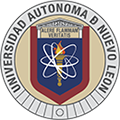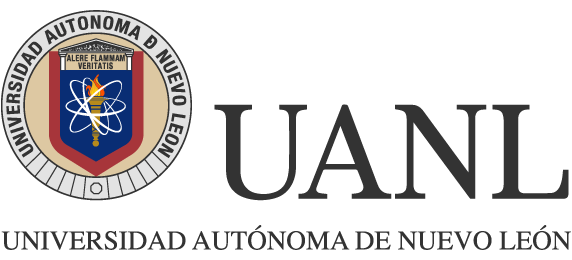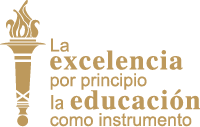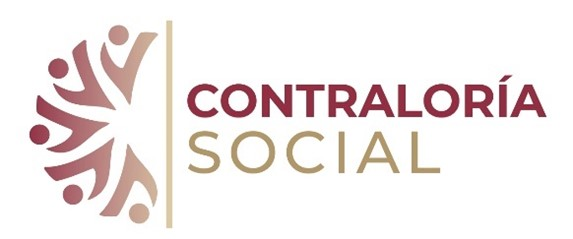Share:
Bachelor of Biomedical Engineering
School of Mechanical and Electrical Engineering
School of Medicine
Admission profile
Applicants to this academic program must have the following qualities:
- Assessing problems through algebra, mathematics, arithmetic, statistics, and probability.
- Applying math tools and statistics for the analysis and decision making.
- Speaking skills.
- Mastering a second language.
- Multidisciplinary teamwork.
Admission requirements
Academic
Have successfully completed high school or equivalent studies
Legal
Meet all criteria established by UANL current standards and procedures.
Testing
Take the Admission Test EXANI-II, established by the National Center for the Evaluation of Higher Education (CENEVAL), the Selection Test, and the Engineering and Technology Diagnostic Test.
Program-specific
Attend and pass the introductory courses for freshman students by UANL and the School of Mechanical and Electrical Engineering.
Individual interview with the selection committee to consider skills and attitudes related to the educational program.
Graduation profile
Purpose:
To educate biomedical engineers who are capable of doing research, identify needs in terms of bio-materials and electronic tools, improving the quality of human life. Engineering professionals are capable of using communications technologies in order to improve the quality of health services in private and public institutions. Our graduates are based on a philosophy underpinned by values of ethics, justice, truth, honesty, and respect.
They will be trained in clinical engineering in order to evaluate and implement hospital technology that complies with current regulations, this enhances the safety and security of patients.
Our graduates will provide an effective patient care service based on physiological information gathered through electronic instrumentation. Engineers will design computational in order to optimize hospital processes.
Biomedical engineers will test the feasibility of biomaterials that enables regenerating diseased tissues and organs, create prototypes of prosthesis and implants at a reasonable cost to the people in need.
General skills
Instrumental skills.
- Following self-learning strategies at the different levels and fields of knowledge, which enables effective decision-making in personal, academic, and professional areas.
- Using logical, mathematical, iconographic, verbal, and non-verbal language for the ecumenical interpretation and expression of ideas, feelings, and theories.
- Employing information and communication technologies for accessing information that eventually becomes knowledge as well as promoting learning and collaborative work through innovative techniques, having a constructive involvement in society.
- Mastering the mother language in spoken and written form, learning to communicate correctly and adapt messages to specific contexts in order to disseminate ideas and scientific knowledge.
- Analyzing natural events and social movements through creative logical thinking in order to propose relevant decisions according to social responsibility and the graduate’s own professional field.
- Speaking a second language, especially English, for proper communication in common, academic, professional, and scientific settings.
- Making academic and professional proposals based on the best global practices in different disciplines to encourage collaborative work.
- Applying new and traditional research methodologies for personal development and knowledge generation.
Personal and interpersonal skills.
- Committing to cultural and social diversity while complying with the integration principle to promote spaces of harmonious coexistence for local, national, and international contexts.
- Facing emerging social challenges with a critical approach and academic-professional commitment in order to consolidate the general wellbeing as well as sustainable development.
- Practicing UANL values in personal and professional settings: truth, equity, honesty, freedom, solidarity, respect for life and others, peace, respect for nature, integrity, ethics, and justice, contributing to a sustainable society.
Consolidating skills.
- Making innovative proposals based on a holistic understanding of reality to help overcome global challenges.
- Taking a dedicated leadership in encouraging significant changes to fulfill social and professional needs.
- Solving problems in academic and professional areas through specific techniques for proper decision-making.
- Adapting easily to uncertain social and professional environments to have better living conditions.
Specific skills
- Ensuring hospital facilities in optimal conditions through the evaluation of quality processes and current standards providing quality care for patients.
- Verifying the use of biomaterials under a clinical protocol for regeneration of tissues and organs, as well as designing prosthesis and implants and make them available at low cost for populations suffering from motor, physical, and neurological disabilities.
- Using electric instrumentation and creating medical devices in order to register physiological variables using non-invasive procedures.
- Designing computational tools for optimizing processes of diagnosis, monitoring, rehabilitation, and disease treatment.
- Creating knowledge on the basis of biomedical engineering through state-of-the-art research in new devices, medical procedures, biomaterials development, and computational tools.
Labor market
| Area | Jobs |
| Public and private hospitals | Management of hospital technology.
Provide maintenance and support to medical devices. Find compromise solutions to problems in the health sector. Design of medical technology through research and innovation. |
| Government institutions | Oversight of compliance with current regulations of the use of medical equipment.
Technical support and management of technology. Feasibility study on installation projects of medical equipment in compliance with Mexican official standards. Optimization of infrastructure resources and medical equipment. |
| Health research centers | Design of experiments and data collection through mechanical, optical, and electrical instruments that might confirm or refute the hypothesis.
Improvement of medical devices. Use of computational tools in order to improve medical processes. |
| Private companies | Design and development of medical technology.
Implementation of quality management systems. Regulation of health standards during the manufacturing process of medical equipment. |
Graduation requirements
Academic
Have completed the 226 total credits of the academic program.
Have carried out the mandatory learning service.
Legal
Meet all criteria established by UANL's current standards and procedures.
Program-specific
Attend the seminar for professional development.
Have taken a graduation test.
Master a second language other than Spanish.
Location
Posted by: Department of Undergraduate Studies




